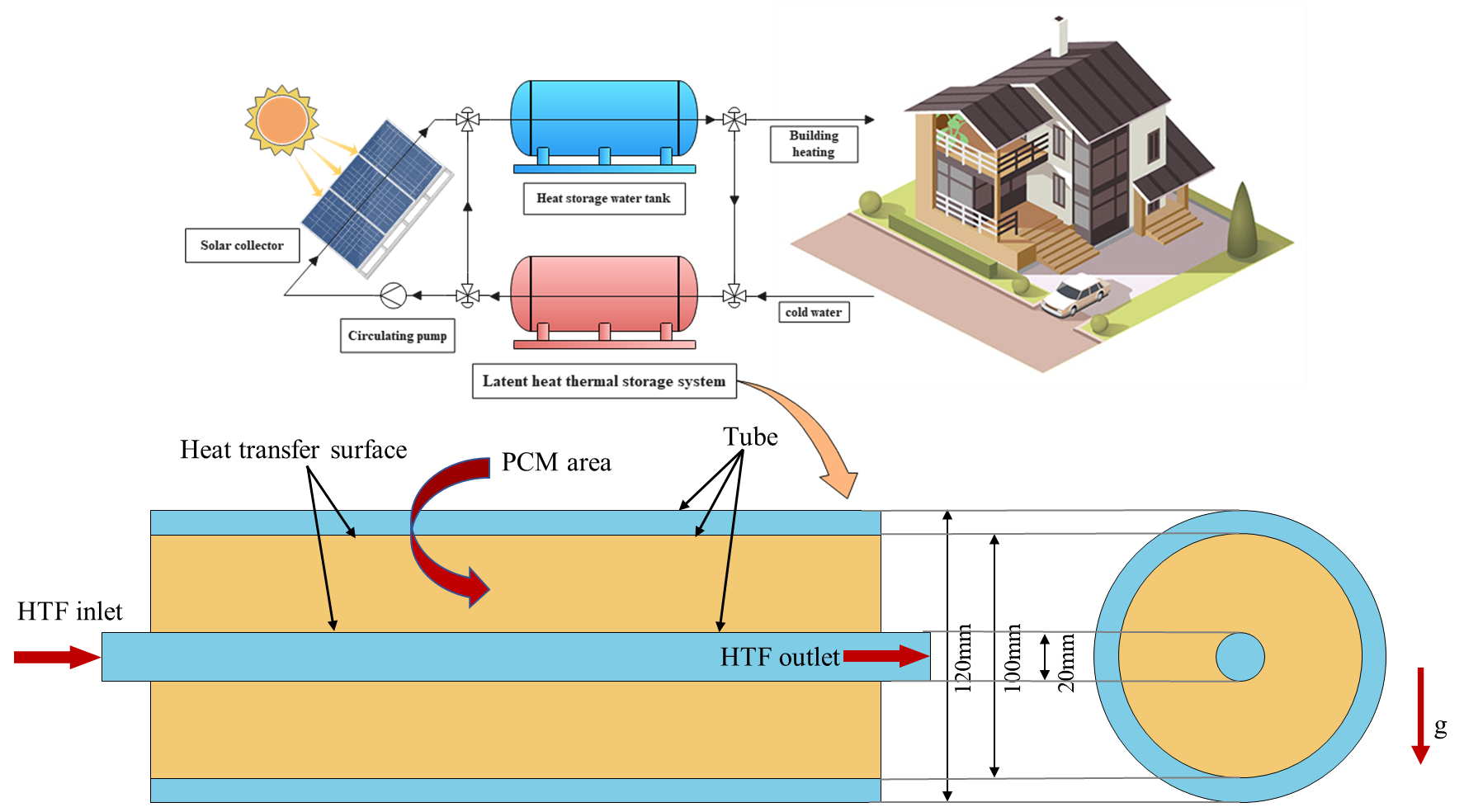近期,我院研究生宋子龙(一作),教师王蛟(通讯)等的研究成果“Application of bionic topology to latent heat storage devices”在《Journal of Energy Storage》(IF=8.9)上发表。将仿生拓扑优化设计用于储热管翅片设计中,探索了一条提高储热性能新的解决方案,相比于传统的翅片设计,储热和放热时间分别减少了21.96%和38.13%。仿生翅片设。
论文简介如下:
Latent heat storage is employed to address the intermittent supply of renewable energy, and enhancing heat transfer in phase change materials (PCMs) is pivotal for achieving effective heat storage. Currently, the predominant method for improving heat transfer is through the integration of high thermal conductivity fins into heat storage devices. This study introduces an innovative design of a three-tube phase change heat storage device created through bionic topology optimization. The impact of parameters such as penalty factors and filtering radius on the topology structure is analyzed, and the optimal range of fin volume fraction is determined based on energy storage density and energy storage time. Considering the influence of natural convection on heat transfer properties, four distinct heat storage models, including topology-optimized fins, are compared. The heat transfer and flow properties during the processes of melting and solidification, as well as their field synergy, are investigated. The study reveals that the optimized fins exhibit more bionic fractal structures and a larger, more uniform heat transfer contact area. Compared to traditionally optimized fin structures, this research reduces the heat storage time of the three-tube heat storage device by 21.96% and the heat release time by 38.13% without compromising the maximum heat storage capacity. The topology-optimized fins demonstrate a fractal dimension similar to natural fractal structures such as branches, leaf veins, antlers, and snowflakes. This study presents a novel bionic structural design approach for high-performance latent heat storage systems.


Fig. 2.Model diagram: (a)Schematic layout of the physical domain of the designed LHTES; (b)Topological optimization design domain for phase change thermal storage units.
全文下载:https://doi.org/10.1016/j.est.2024.113445

